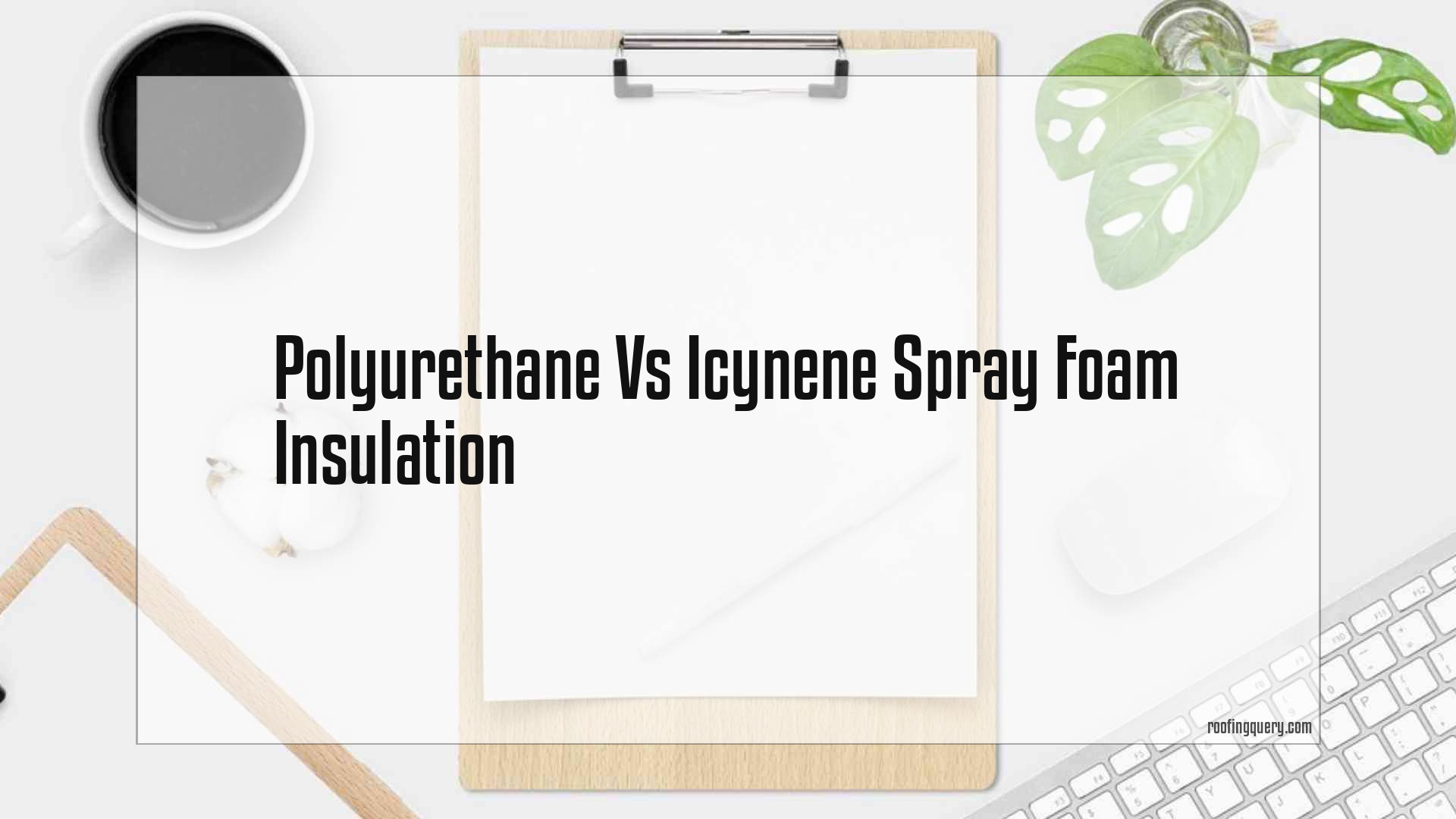Introduction:
There are a few key things to consider when deciding between polyurethane and icynene spray foam insulation. The first is the R-value, or the measure of a material’s ability to resist heat flow. Spray foam insulation generally has a higher R-value than traditional insulation materials like fiberglass. The second thing to consider is the cost. Spray foam insulation is generally more expensive than other types of insulation, but it can result in significant energy savings over time. Finally, you’ll need to decide which type of spray foam insulation is right for your project. Icynene is typically used for residential applications, while polyurethane is more commonly used in commercial and industrial settings.
Differences Between: polyurethane vs icynene spray foam insulation
1. Polyurethane is a type of plastic, while Icynene is a type of insulation.
2. Polyurethane is made from petroleum, while Icynene is made from soybeans.
3. Polyurethane is a solid, while Icynene is a gas.
4. Polyurethane is sprayed on as a liquid and then hardens, while Icynene is sprayed on as a gas.
5. Polyurethane is waterproof, while Icynene is not.
6. Polyurethane is more resistant to fire than Icynene.
7. Polyurethane is more resistant to UV light than Icynene.
8. Polyurethane is more resistant to chemicals than Icynene.
9. Polyurethane is more expensive than Icynene.
10. Icynene is better at insulating than Polyurethane.
Everything About polyurethane
1. Polyurethane is a versatile material that can be used for a variety of applications.
2. Polyurethane is durable and has a long lifespan.
3. Polyurethane is resistant to chemicals, UV light, and extreme temperatures.
4. Polyurethane is a good insulator and can help reduce energy costs.
5. Polyurethane is environmentally friendly and can be recycled.
6. Polyurethane is flammable and can be dangerous if not used correctly.
7. Polyurethane can off-gas and emit VOCs, which can be harmful to indoor air quality.
8. Polyurethane is more expensive than other insulation materials.
9. Polyurethane requires professional installation, which can add to the cost.
10. Polyurethane can be difficult to remove if it needs to be replaced.
Review of icynene spray foam insulation
1. Icynene spray foam insulation is more expensive than polyurethane insulation.
2. Icynene spray foam insulation is more difficult to install than polyurethane insulation.
3. Icynene spray foam insulation is more effective at sealing air leaks than polyurethane insulation.
4. Icynene spray foam insulation can be more difficult to remove if it needs to be replaced.
5. Icynene spray foam insulation can help improve the indoor air quality by sealing off any gaps that would allow outside air to enter the home.
6. Icynene spray foam insulation can help reduce energy costs by keeping the home better insulated.
7. Icynene spray foam insulation can add to the overall noise reduction in the home.
8. Icynene spray foam insulation can act as a barrier to pests and other animals trying to enter the home through gaps in the insulation.
9. Icynene spray foam insulation can help improve the resale value of the home.
10. Icynene spray foam insulation can help to create a more comfortable indoor environment by regulating the temperature and humidity levels.
Conclusion
The two main types of spray foam insulation are polyurethane and icynene. Both have their advantages and disadvantages, so it is important to choose the right one for your project. Polyurethane is more expensive but has a higher R-value, so it is better at insulating. Icynene is less expensive but does not have as high of an R-value, so it is not as good at insulating.
Now that you understand the difference between polyurethane and icynene spray foam insulation, you can make an informed decision about which one is right for your home. If you have any questions, please feel free to leave a comment below.

